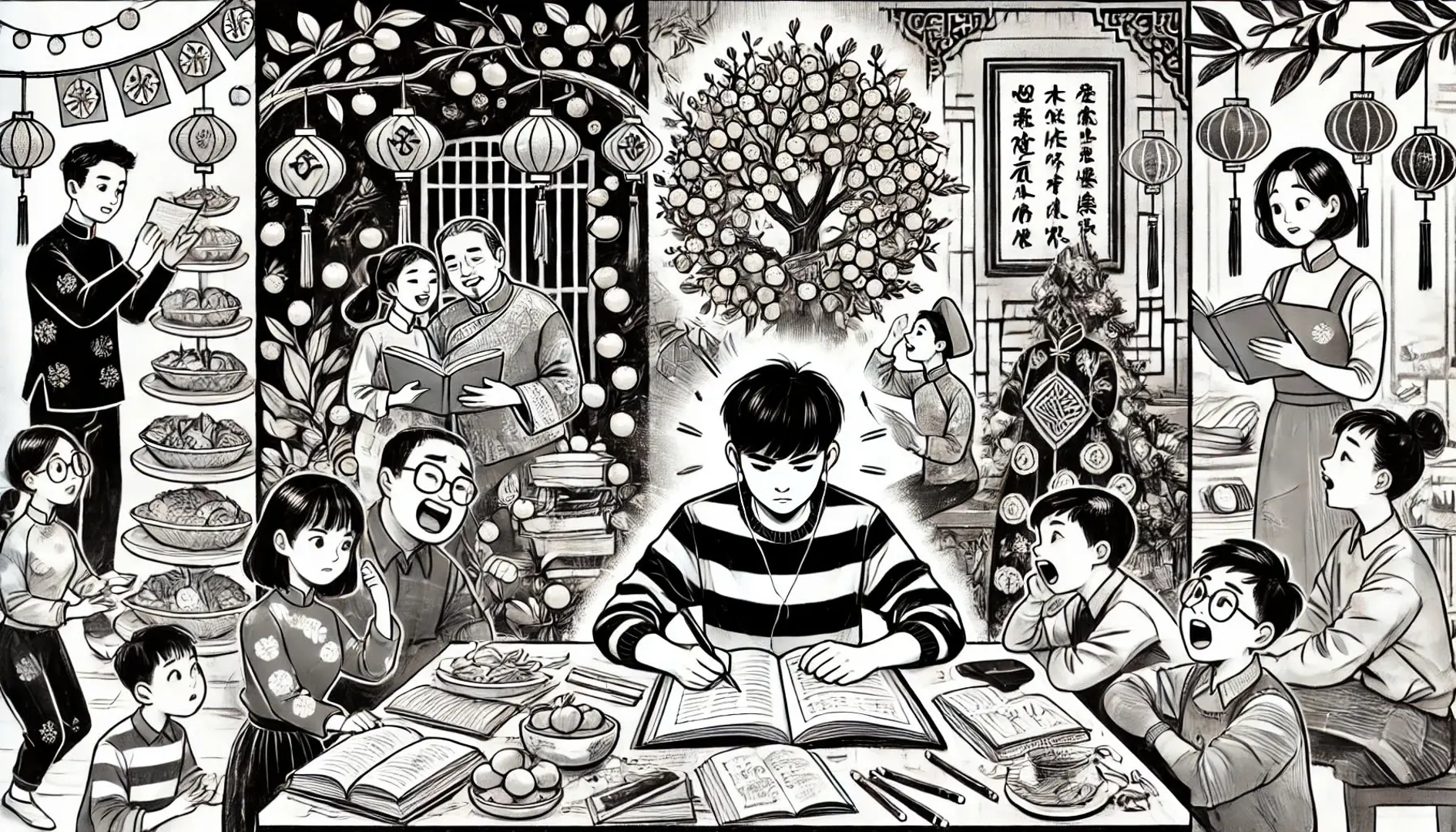Pavement renovation: Shouldn't it be the responsibility for both government agencies and people?
Welcome back to the Words on the Street, where we look deep into the latest developments of Hanoi and the country.
As Hanoi's year-end rush unfolds, sidewalks – designed to support a modern urban lifestyle – have instead sparked frustration and concern among its residents. Reports of newly paved sidewalks rapidly deteriorating, coupled with disruptive and seemingly endless reconstruction projects, have cast a spotlight on questions of quality, accountability, and urban management.
In this edition of Words on the Street, we delve into the controversies surrounding the city's sidewalk repairs, the decisive action taken by the Chairman of the Hanoi People’s Committee, and the collective responsibility required to preserve these vital public spaces.
In the very last months of the year, the story of newly paved sidewalks in Hanoi quickly deteriorating has become a hot topic of public discussion.
Residents living along Le Trong Tan Street in Ha Dong District have reported that the sidewalk of this street, which had been completed only a few years ago, has been undergoing reconstruction since mid-September.
This ongoing construction has led to environmental pollution and diminished the effectiveness of the public works.
One notable consequence of this is the worsening air quality in the area, which has consistently remained poor due to dust and debris, posing serious health risks to residents. The construction has also caused significant inconvenience and potential safety hazards for road users.
On-site observations reveal a stretch of sidewalk over 1km long that has been dug up, with only a few workers present on the construction site. Many open manholes and raised concrete slabs lack warning signs, posing significant risks to pedestrians. The absence of warning boards or barricades forces pedestrians to navigate through an active construction zone.
Building materials and debris are also left scattered on the road, making traffic flow more challenging. Business operations have been disrupted, and the lives of residents along the street have been turned upside down for nearly three months.
Zooming out to the broader Hanoi area, this is not an isolated case. Nearly every year-end, the capital transforms into a vast construction site. Images of cracked tiles and sidewalks dug up on numerous streets have not only frustrated residents but also raised significant questions about the quality of construction and the management of public infrastructure.
In response to this situation, Chairman of the Hanoi People’s Committee Tran Sy Thanh has requested that local authorities and government agencies conduct a comprehensive review and penalize any violations in pavement maintenance and renovation.
Such action has garnered widespread support and reflected a strong commitment to building a modern, sustainable, and civilized capital.
The Chairman’s prompt action in ordering a quality assessment of sidewalk paving, identifying the causes of damage, and holding relevant stakeholders accountable, underscores the city's determination to enhance urban management.
This is a necessary move, not only to safeguard public interest but also to reaffirm the city's leadership and accountability. The directive aims not only to address immediate concerns but also to ensure long-term improvements in the quality of public works, guaranteeing that taxpayer money is utilized effectively and yields lasting value.
From people’s perspectives
However, to prevent the recurring cycle of “digging up and repaving,” the active participation and sense of responsibility from society as a whole, especially from residents, are essential.
Currently, the misuse of sidewalks for purposes such as riding motorcycles, parking cars, or encroaching for business operations is widespread across many streets.
These practices not only strip sidewalks of their intended function for pedestrians but also cause severe structural damage, leading to rapid degradation even after recent repairs. This issue cannot be overlooked if the goal is to build a civilized city.
To restore sidewalks to their original purpose of serving pedestrians, each resident must be fully aware of their role and responsibility. Sidewalks are not alternative routes for motorcycles to avoid traffic jams, nor are they parking spaces for cars. Proper use of sidewalks not only demonstrates respect for the law but also serves as a practical way to protect public infrastructure built with taxpayer money.
If everyone exercises self-discipline and refrains from prioritizing short-term convenience over compliance, we can collectively extend the lifespan of newly paved sidewalks, reduce the financial burden on the government, and avoid the need for continuous repairs.
Beyond individual awareness, the government must also implement stronger measures to protect sidewalks. Strict monitoring and enforcement should be applied to curb inappropriate uses of sidewalks, while public awareness campaigns should be intensified to foster greater community understanding.
Whilst, selecting appropriate materials, adhering to proper construction techniques, and establishing regular maintenance protocols are crucial factors in ensuring the quality and durability of sidewalk projects.
The Chairman’s directive demonstrates an open-minded, responsible, and resolute approach to improving the quality of urban infrastructure. However, to ensure these efforts yield lasting results, every citizen must actively participate in preserving and maintaining public works.
A civilized city is not solely the product of good governance; it also arises from the awareness and actions of its residents. When the government and the people work in harmony, we can look forward to a transformed urban landscape where sidewalks are not only safe spaces for pedestrians but also symbols of sustainable and progressive development.


















